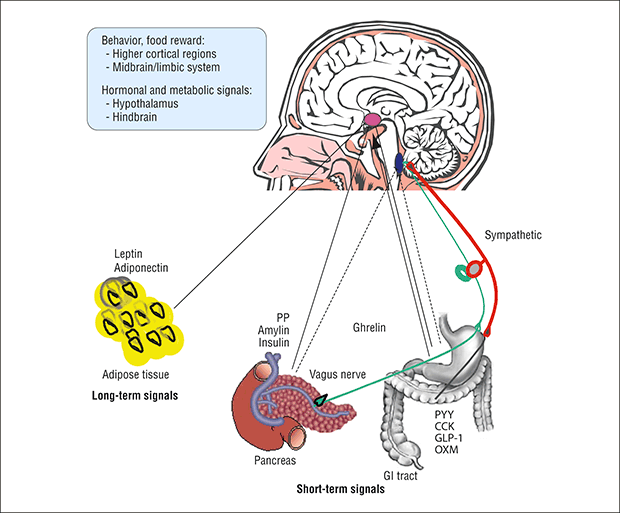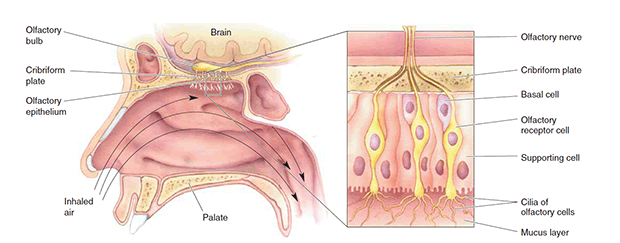Anyone who has ever consumed cannabis has experienced some form of what, we in cannabis culture call, “the Munchies”. Whether you vape it, eat it, roll it, or bowl it, after a while, the flower inspires a powerful surge of hunger that’s nearly impossible to suppress. So much so, that after lighting up, many have found themselves left with a raging appetite and mission to raid their pantry.
Some people may not give a hoot, because, for them, the munchies are just part of the experience. Yet, we at CSG, think it’s about time we understood why they occur in the first place. In this article, we share the root cause of munchies and the science behind this effect.
Cannabinoids, brains and hunger games: The endocannabinoid system controls your hunger
You’ve probably heard it referenced in stereotypical “smoker flicks”, but “having the Munchies” is a term used to describe the appetite-stimulating effect of cannabis. Turns out; it all depends on cannabinoid receptors found in your body’s own endocannabinoid system (ECS). These CB receptors (mainly the CB1 and CB2 receptors) in the brain, immune system and digestive system, control domains in the body like; mood, memory, pain, and appetite. When activated by cannabinoids, these CB receptors can alter these domains drastically and create profound changes in your body.
When it comes to appetite, your body’s hunger receptors will switch off when we have eaten a reasonable amount of food. However, exogenous cannabinoids found in cannabis – most importantly THC – interact with these receptors (CB1) and seem to give us the munchies by manipulating neural pathways in the brain. They’re “used” by THC to produce a different set of chemicals that cause us to have a more acute sense of smell, which inevitably can influence an increased appetite that is never quite satisfied.
Apparently, fasting (defined as skipping a meal) increases natural (endo-)cannabinoids that look and act similarly to THC, and like THC, also activates the same receptors. This creates a domino effect that makes us feel hungry — and when you’re hungry, your olfactory system is more sensitive to smell. But, is this all that there is to know?
So far, the scientific community has found there are a number of reasons that may explain why cannabis summons the cookie monster in all of us.
A mighty mouse high: how THC heightens the senses
In a 2014 study, the research of Giovanni Marsicano (et al.) and team over at the University of Bordeaux sought to explain the munchies. In their discovery, they found that the effects of endogenous and exogenous cannabinoids were indeed similar in mice and most likely humans as well.
The scientists thought perhaps the two processes — that burning desire to eat (i.e. munchies) and an enhanced sense of smell were closely linked to causing the effect of the munchies. After dosing a few mouse models with THC, they went hunting for receptors in their brains that regulated both. They found that the THC molecule fit almost perfectly into the rodent’s Main Olfactory Bulbs (MOB). Packed in that part of the brain, they also found tons of cannabinoid-induced feeding receptors which not only caused an enhanced sensitivity to the scent of food, but also a spike in appetite — both in high and, fasting rodents. Marsciano’s study may not be the first to explore the role of cannabinoids on munchies, but his findings do show that cannabis’ THC has some impact on how our heightened sense of taste and smell affects our food intake.
THC trickster: How cannabis tricks the brain in feeling less full
Another piece of the THC-and-appetite puzzle comes from Tomas Horvath, a professor of neurobiology and Marco Koch of the University of Leipzig (et al.) He and his research group discovered that by exposing POMC neurons (pro-opiomelanocortin – nerve cells found in the part of the brain called hypothalamus, which regulates, amongst others, signals of fullness – to THC, tricks the brain into thinking it’s hungry. While under the influence of THC, POMC neurons not only fail to signal fullness but rather do the opposite and put the hunger signals into overdrive.
Open the floodgates: How cannabis stimulates the production of the hormone Ghrelin
A third and more recent attempt to explain the munchies comes from Washington State University’s professor, Jon Davis. His research, (still under review due to cannabis research barriers, despite legalization in Washington), also shows that THC additionally interacts with the same sorts of receptors in the hypothalamus, by triggering a hormone that stimulates hunger called Ghrelin. Usually, when the stomach is empty, ghrelin gets released and signals our brain that it’s time to chow down some food. But, in their study conducted on mice, Davis and his team discovered cannabis consumption influences appetite by a released surge of ghrelin, much more than normal. After mice were administered THC and sufficiently stoned, their ghrelin levels rose and they gorged. When researchers reduced the amount of the hunger hormone or gave the mice a drug to prevent the ghrelin surge, however, results weren’t the same. The mice ended up losing their appetites, which might confirm it was triggered by cannabis.
Of mice and men: The effects of cannabis aren’t the same for all mammals, or are they?
We know, mice aren’t men — especially when it comes to their impeccable sense of smell. Compared to humans, they devote most of their lives sniffing out food and use more brain power than us to do so. However, it seems that humans and mice have similar ways of chasing the cheese. The one aspect that weds these studies together, despite their disparate mechanisms, is that THC does much of its work by manipulating parts of the brain normally used to regulate our senses. Therefore, in the case of the munchies, highlighting the role of cannabis in our body’s natural endocannabinoid system is vital to understanding the effect and what potential health benefits it may provide.
The down- and upside of cannabis and appetite
The munchies are something most of us laugh about, but all joking aside, it can be difficult to deal with for some people. Don’t get us wrong, munching on tasty delights after some good herb is always tempting, but people trying to avoid certain foods or overeating need to be mindful of this side effect.
On the other hand, if mice are an accurate model for humans, this side effect of cannabis consumption may work the same way for people suffering from eating disorders such as anorexia, bulimia nervosa, mood, weight issues, nausea, and other illnesses. The upshot of all this is, patients in recovery can make breaks in treatment and may be able to get back in tune with their natural hunger cues through appetite stimulation as well as weight restoration.
Amsterdam Tip:
Looking for somewhere to satisfy your munchies while enjoying a smoke? Coffeeshop Prix D’Ami serves delicious food and smoothies from 09:00 – 00:00 daily. View their full menu here.

